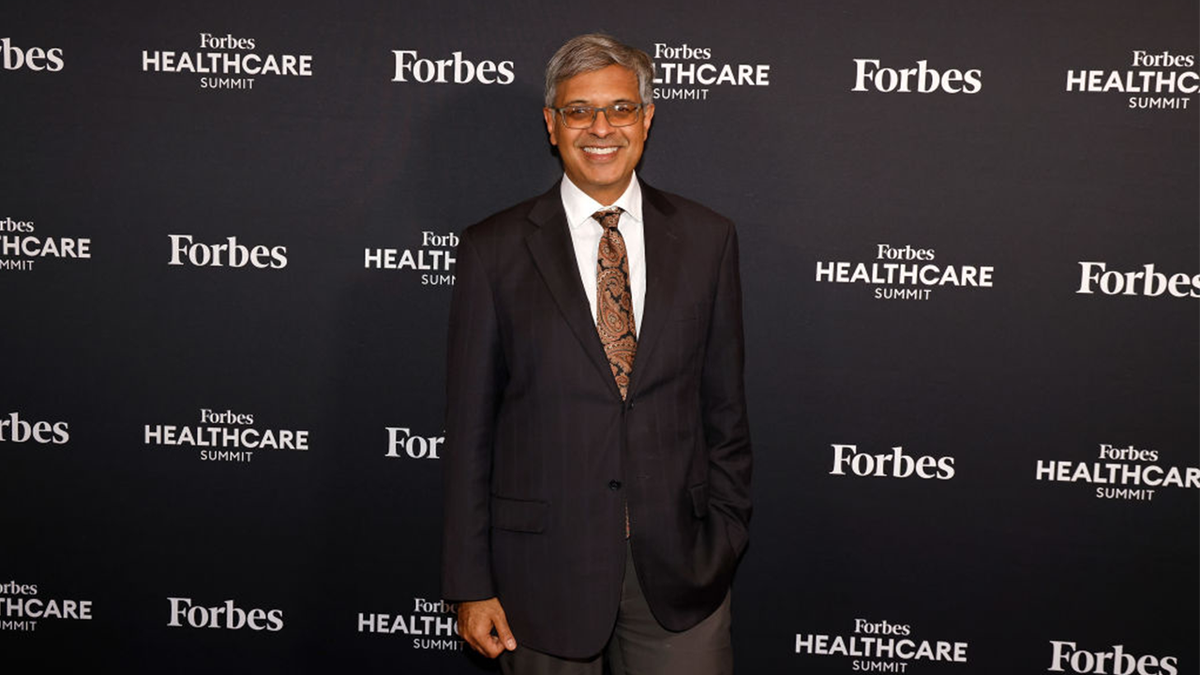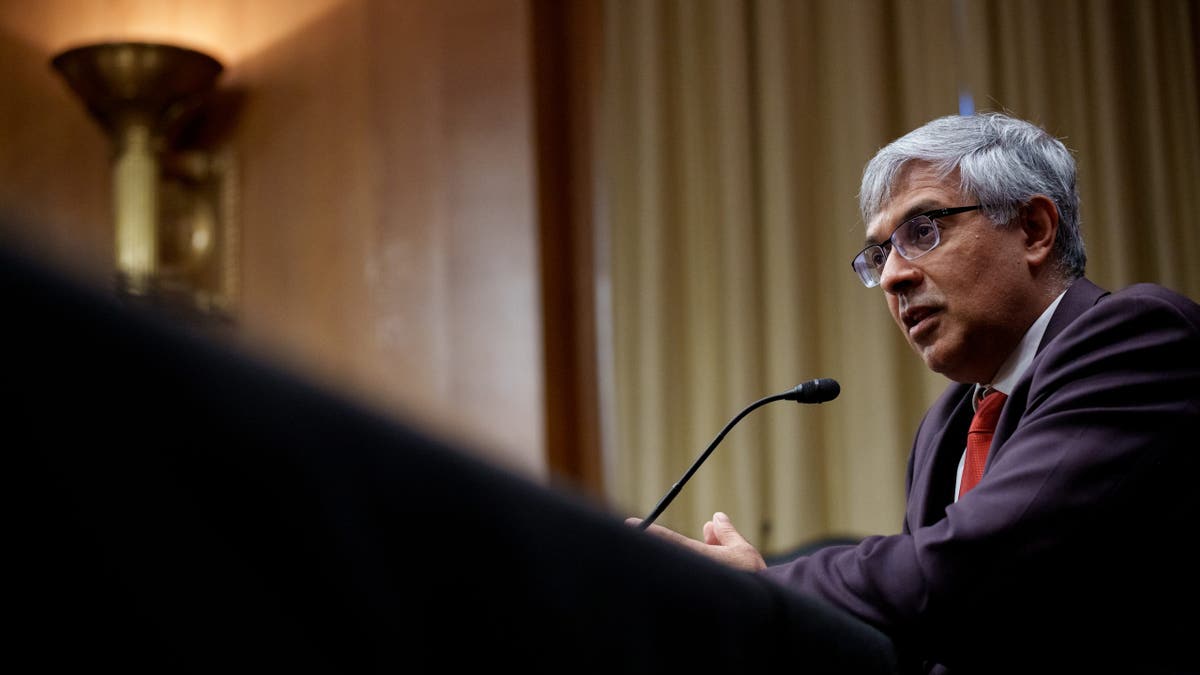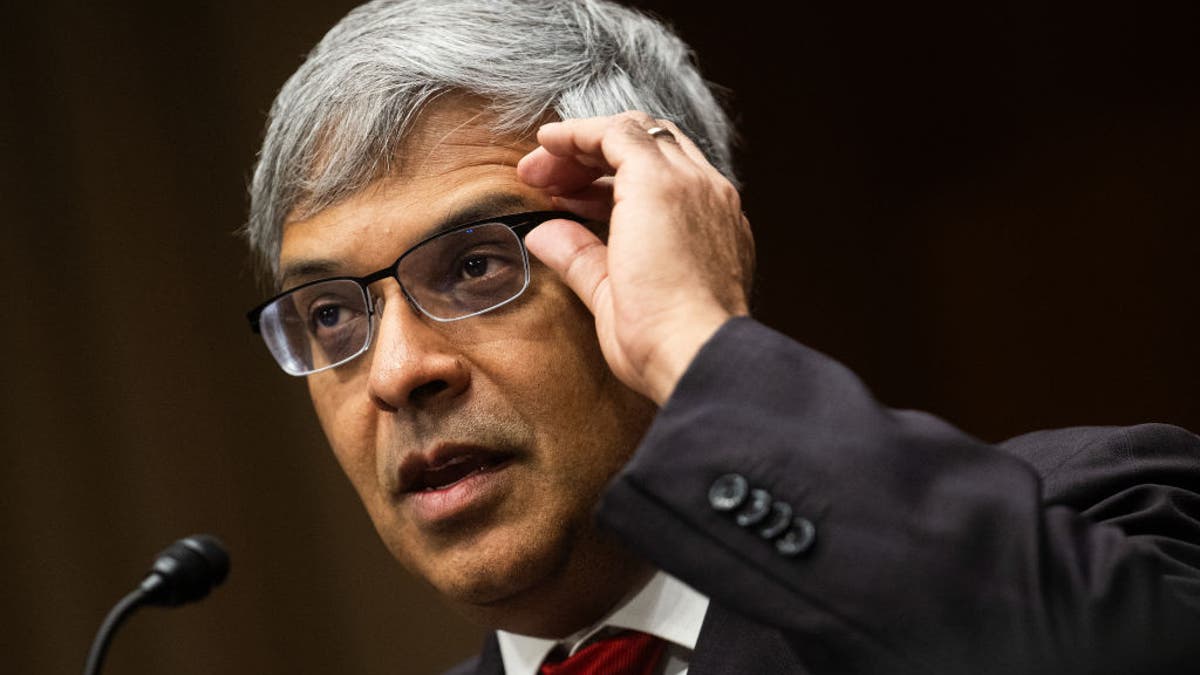The full Senate voted on Tuesday evening to confirm President Donald Trump's choice to lead the National Institutes of Health (NIH), Dr. Jay Bahtasharia.
The partisan line voted followed the approval of the Senate for Health, Education, Labor and Pensions Voice on partisan lines To advance in Bhattacharlya, which led to a full day vote in the Senate.
The doctor, a professor of medicine at Stanford and his oldest colleague at the University Economic Policy Research Institute, was a pioneering voice during the Covid-19s against the closure measures and vaccine delegations. One of the authors participating in the Great Barrington Declaration, a document published in October 2020 by a group of scientists who defend Covid on a large scale and enhance the effectiveness of the natural immunity of individuals with low risk instead of vaccination.

The doctor, a professor of medicine at Stanford and his oldest colleague at the University Economic Policy Research Institute, was a pioneering voice during the Covid-19s against the closure measures and vaccine delegations. (Getty Images)
Bhattacharlya was examined by the Senate Assistance Committee earlier this month due to various issues related to its potential role as NIH director. However, for a large part of the session, he was forced to defend the president's decision to cut some research funds in the national health institutes, including The maximum of 15 % on indirect search costs, Also known as administrative facilities and costs, which are dispersed by the National Institutes of Health.
Bhaterea does not explicitly say that he does not agree to discounts, or that, if confirmed, he interferes to stop them. Instead, he said that the law “will be followed”, with an investigation also in the impact of discounts and ensuring that each of the National Health Institutes of Health is a job that progresses on the health results of the Americans of the necessary resources.
“I think transparency in relation to indirect costs is worth it. It is something that universities can reform by working together to ensure that these funds are clarified,” Bahtasharia said of the indirect costs that are directed to universities, hospitals and research clinics from the National Health Institutes.

Jayanta Bhatertharia, the candidate for President Donald Trump to be the director of the National Institutes of Health, is speaking in the assertion session before the Senate, Education, Labor, and pensions in Capitol Hill on March 5, 2025 in Washington, DC. (Andrew Harnik/Getty Emiez)
In addition to dealing with questions about Trump discounts, Bhaterea also developed what he called a new, decentralized vision for the future Research in the National Institutes of Health He said that he would aim to adopt opposition and transparency ideas, with a focus on research topics that have the best opportunity to benefit directly from the health results of the Americans. Bhattacharlya added that he wants to rid the agency's research portfolio for other “trivial” efforts that he says is only a little to benefit directly from the health results.
“I think what matters mainly: Do scientists have the idea of progressing the scientific field in which they are?” Bhatersia said last week during the confirmation certificate. “Do they have an idea that ends the treatment Health needs Who are the Americans? “

Jayanta Bhattacharya witnesses during the American Senate Committee on Health, Education, Work and Retirement Pensions to be nominated to be the director of the National Institutes of Health (NIH), in Capitol Hill in Washington, DC, on March 5, 2025. ((Jim Watson / AFP) (Photography by Jim Watson / AFP via Getty Images))
Click here to get the Fox News app
Before his confirmation, Bhattacharlya, along with many other scientists, including Trump's choice of the Food and Drug Administration, Dr. Marti Macari, A new research magazine launched Focus on stimulating scientific discourse and combating “preservation of the gate” in the medical research community. The magazine, entitled the Journal of Public Health Academy (JAPH), aims to stimulate the scientific discourse by publishing peer reviews for prominent studies from other magazines that do not make peer reviews available to the public.



